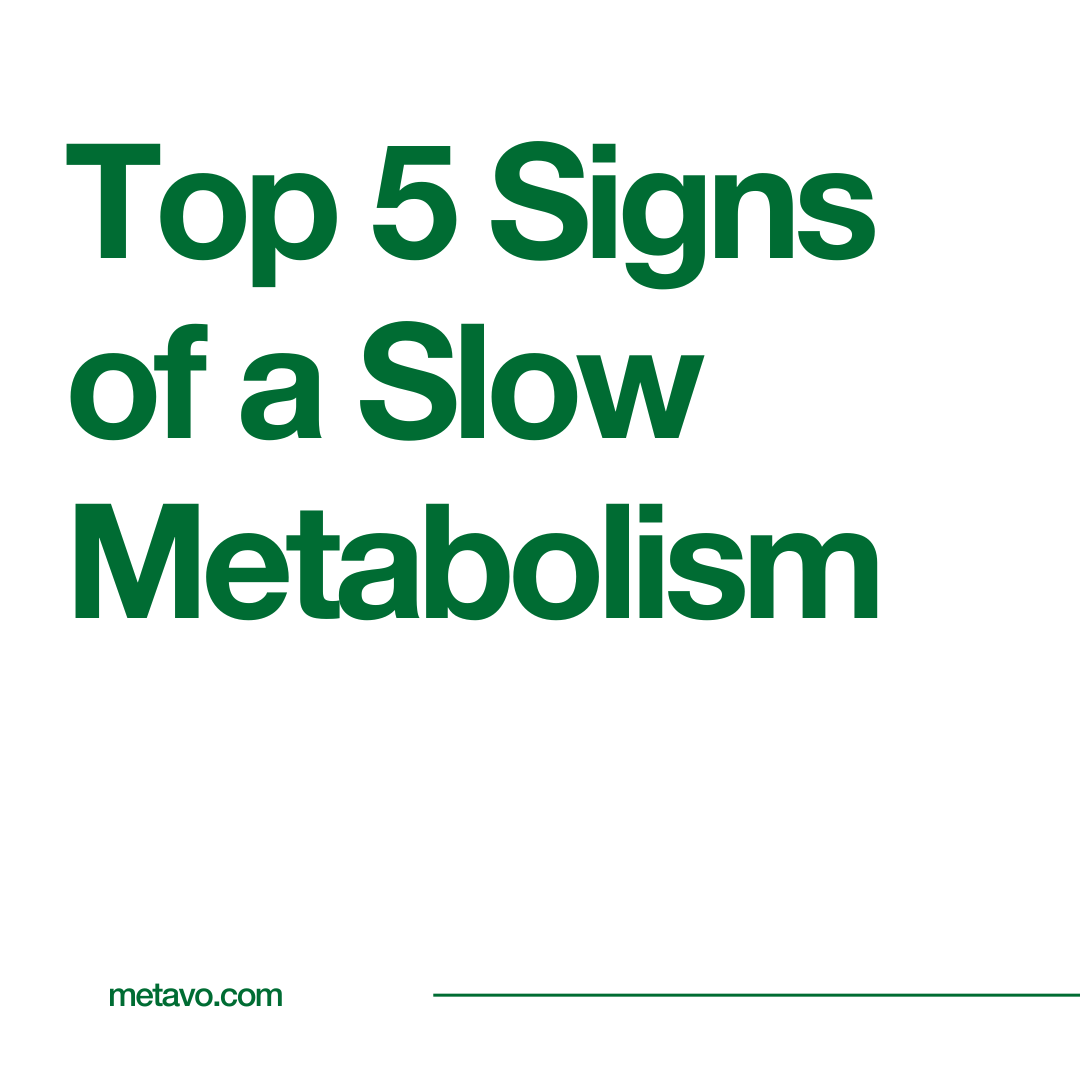Metabolism dysfunction is a term used to describe the problem where your body can't process sugar properly. It's not just about weight, but also about energy levels and mood.
Metabolic dysfunction can affect your whole body, impact your blood sugar, weight, and even your aging. In fact, symptoms like fatigue, joint discomfort and even feeling despair could be caused by metabolic dysfunction! The good news is that there are ways you can help reverse these issues without taking medicine or having surgery.
Metabolism dysfunction is a seemingly invisible issue that 88% of North Americans have that interferes with how your body produces and uses energy.
Metabolism dysfunction is a seemingly invisible condition that 88% of North Americans have that interferes with how your body produces and uses energy.
It's caused by imbalances in your blood sugar, insulin and blood pressure.
Metabolism dysfunction can cause issues like fatigue, weight gain, feeling of despair, irritability and occasional sleeplessness.
The good news is there are many ways to fix metabolism dysfunction on your own! With proper nutrition; exercise and supplementation you can improve your metabolism dysfunction.
It's caused by imbalances in your blood sugar, insulin, and blood pressure--all of which are controlled by your hormones.
Metabolism dysfunction is caused by imbalances in your blood sugar, insulin, and blood pressure—all of which are controlled by your hormones.
Your metabolism is the process that allows your body to use energy from food for all the functions it needs to perform on a daily basis. Your hormones play an important role in this process because they control how you burn energy, store fat, and gain weight.
Your metabolism can be disrupted when there are changes in hormone levels (such as insulin resistance), imbalances of certain hormones (such as cortisol), or an overproduction of certain hormones (such as estrogen).
There are two main types of metabolism dysfunction: insulin resistance and insulin deficiency.
Insulin resistance and insulin deficiency are two related conditions that can cause metabolic dysfunction. Insulin resistance is considered to be a precursor to type 2 diabetes, while insulin deficiency can cause hypoglycemia, which is characterized by low blood sugar levels. Both of these problems can occur when there’s an imbalance in the hormone system that regulates metabolism (the way your body turns food into energy).
The good news is that both problems are often linked; they have similar symptoms, and they respond well to similar solutions.
Insulin resistance means your cells don't take insulin properly and ultimately can't use it properly.
Insulin resistance is a condition in which the body's cells reject insulin. Insulin is a hormone that helps regulate your blood sugar levels by allowing glucose to travel from your bloodstream into your cells, where it can be used for energy.
Insulin resistance can lead to high blood sugar levels, which can cause long-term health problems such as heart disease and type 2 diabetes. Insulin resistance has also been linked with obesity and metabolic syndrome (a cluster of risk factors for heart disease).
Insulin deficiency means that cells can't make enough insulin to get sugar into the cells.
Insulin is a hormone that triggers the body to use sugar for energy. It's released by the pancreas in response to food and it helps cells take sugar from the bloodstream and use it for energy. Insulin deficiency means that cells can't make enough insulin to get sugar into the cells.
Insulin resistance occurs when muscle, fat and liver cells become resistant to insulin. This makes them work less efficiently at taking up glucose from your blood stream, which raises your blood sugar level over time. As a result of this resistance, more insulin is required just so you can maintain normal levels of glucose in your blood stream once again (which further promotes weight gain).
The two conditions are often tied together, with both being caused by other problems, such as obesity and genetics.
Insulin resistance and insulin deficiency are often caused by other problems, such as obesity or genetic predisposition. The two conditions are also often tied together, with both being caused by other issues like:
- Obesity
- Genetics
Other factors that can cause insulin resistance and insulin deficiency are aging, stress, diet and lack of exercise.
A third main type of metabolic malfunction, called mitochondrial dysfunction, is rarer but can cause issues similar to the others.
A third main type of metabolic malfunction, called mitochondrial dysfunction, is rarer but can cause issues similar to the others.
Mitochondria are tiny structures within cells that serve as the cell's power plants. They convert food into energy and help maintain the body's metabolism by regulating how much sugar your liver releases into your bloodstream. If these little guys aren't working properly, this can lead to problems with blood sugar (also known as blood glucose) levels, causing high levels of insulin or low ones that result in hypoglycemia—a condition that makes it difficult for your body to function normally and affects your mood and behavior.
A person with mitochondrial dysfunction may also experience fatigue; muscle weakness; tingling or numbness in their hands or feet; vision problems such as blurry vision or seeing spots before their eyes; dizziness when standing up too quickly; dizziness upon turning head suddenly; sensitivity to light; dry mouth due to lack of saliva production (called xerostomia); constipation due to decreased intestinal movement caused by nerve damage associated with diabetes mellitus type 2
Fortunately you can help correct metabolism dysfunction without taking medicine or even having surgery.
Fortunately, you can help correct metabolism dysfunction without taking medicine or even having surgery. Eat a healthy diet and get regular exercise. Exercise is important for your health and well-being because it helps you lose weight and improve your metabolism. Exercise can also help you live longer as well as reduce your risk of heart disease and type 2 diabetes. A healthy diet includes whole grains, healthy fats, lean proteins, fruits and vegetables. A high-protein diet will help you build muscle mass which will improve insulin resistance.
Try Metavo
Luckily, you can help correct metabolism dysfunction without taking medicine or even having surgery. You can try Metavo. In fact, the key ingredient in Metavo called AVOB actually helps activate the mitochondria (the powerhouse for energy) and improves insulin resistance which helps balance blood sugar, support weight goals, increase energy, enhance brain function, support healthy aging, boost mood, regulate hormone balance, and provide support for type 2 diabetes by reducing A1C levels. Try it for yourself for just 30 days and feel the difference or your money back.
These statements have not been evaluated by the Food and Drug Administration. These products are not intended to diagnose, treat, cure, or prevent any disease. Read entire label before use or consult your doctor.














Leave a comment
This site is protected by hCaptcha and the hCaptcha Privacy Policy and Terms of Service apply.